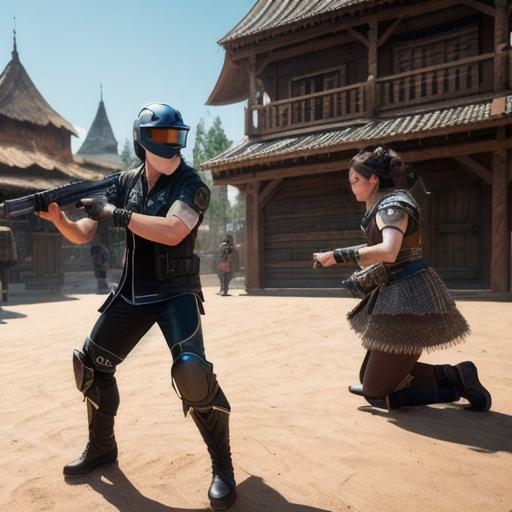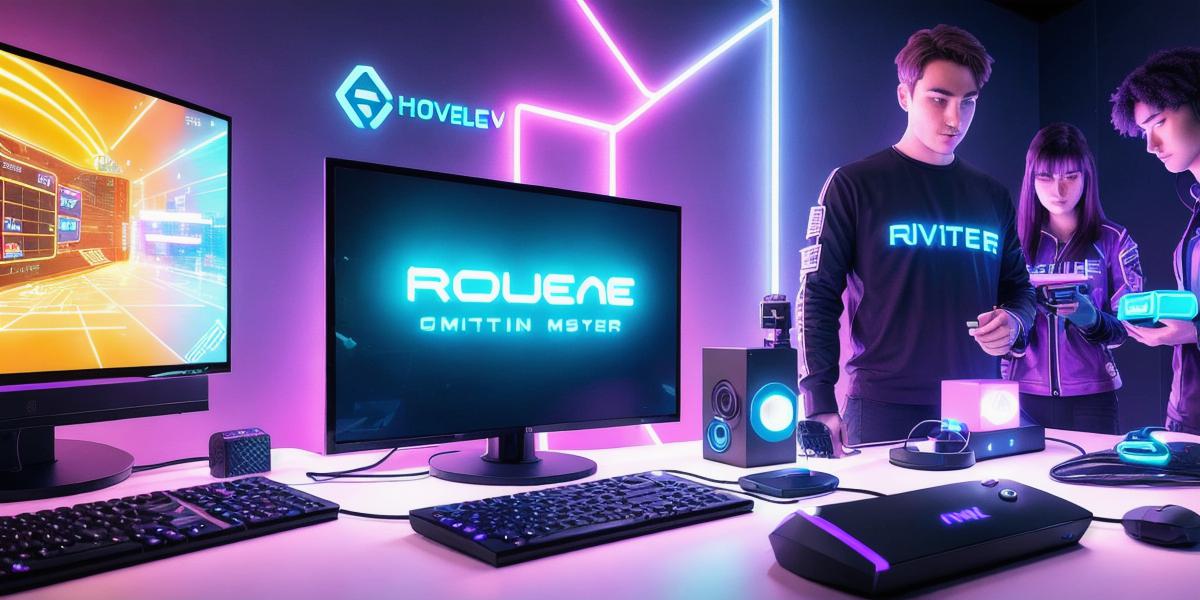Blockchain technology has been gaining popularity in various industries, and gaming is no exception. With its ability to provide transparency, security, and decentralization, blockchain technology can revolutionize the way games are developed and played. In this article, we will explore how blockchain technology is transforming the gaming industry, and what developers need to know about it.
One of the main advantages of blockchain technology in gaming is its ability to provide players with ownership of their in-game assets. With blockchain, players can store and transfer their virtual assets securely, without the need for intermediaries such as game publishers or payment processors. This gives players more control over their gaming experience, and allows them to monetize their virtual assets if they choose to do so.
Another way that blockchain technology is changing the gaming industry is by enabling peer-to-peer transactions between players. This means that players can trade in-game items directly with each other, without the need for a central authority or payment intermediary. This not only reduces transaction costs and delays, but also opens up new possibilities for game monetization.
Blockchain technology is also being used to develop more transparent and secure games. By using blockchain-based smart contracts, developers can create games that are free from fraud and tampering, and that automatically distribute rewards based on player performance and achievements. This not only enhances the overall gaming experience, but also provides a level of security that is unmatched by traditional game development methods.
Finally, blockchain technology is being used to create more immersive and engaging games. By using blockchain-based virtual reality (VR) and augmented reality (AR) technologies, developers can create games that are more interactive, personalized, and responsive to player actions. This not only enhances the overall gaming experience, but also opens up new possibilities for game monetization.

Despite its many benefits, blockchain technology is still in its early stages of development, and there are some challenges that need to be addressed before it can be fully adopted by the gaming industry. One of the main challenges is scalability, as blockchain networks can struggle to handle large volumes of transactions.
Another challenge is regulatory uncertainty, as different countries have different attitudes towards blockchain technology and its use in gaming. This can make it difficult for developers to navigate the legal landscape, and may discourage some from investing in blockchain-based games.
In conclusion, blockchain technology has enormous potential to revolutionize the gaming industry. By providing players with ownership of their in-game assets, enabling peer-to-peer transactions, creating more transparent and secure games, and immersive and engaging experiences, blockchain technology can transform the way we play and experience games. However, there are still challenges that need to be addressed before it can be fully adopted by the gaming industry, and developers need to be aware of these challenges when considering how to incorporate blockchain technology into their games.
FAQs:
Q: What is blockchain technology?
A: Blockchain technology is a decentralized digital ledger that records transactions in a secure and transparent way. It uses cryptography to ensure the integrity of the data, and it does not require intermediaries such as banks or payment processors.
Q: How can blockchain technology be used in gaming?
A: Blockchain technology can be used in gaming to provide players with ownership of their in-game assets, enable peer-to-peer transactions, create more transparent and secure games, and immersive and engaging experiences.
